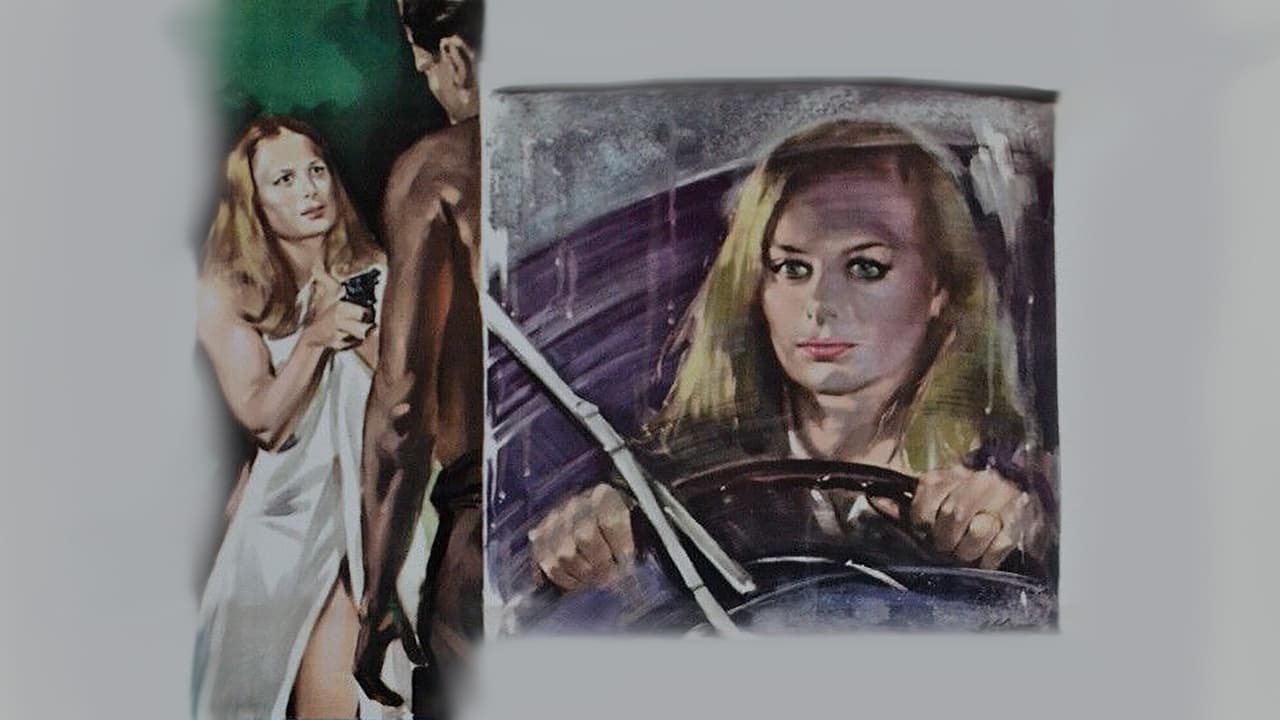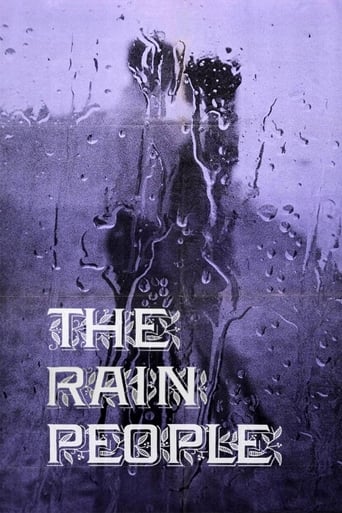

This is a film that when you say James Caan, Robert Duvall, and Shirley Knight, with Francis Ford Coppola writing and directing, you'd expect an 8 or 9 rating. When you watch the film, it does not quite live up to the sum of these parts. There are a few reasons. Shirley Knight is brilliant, and her character is addressing the issue of Roe V Wade (1973) here 4 years before the court decision. I credit Coppola for bringing that into the plot. What gets hard to understand is that she runs away because she is pregnant from her husband, not sure if she is going to be a good mother, and not sure of anything it seems. The script has her calling her husband, yet it does not really explain if she loves her husband, though I suspect not. James Caan is very good as the brain damaged football player whose nickname is killer and who has been given $1,000 to leave the college he got injured in a game at. It is not a big dialogue role which had to be tough for the talkative Caan but he brings it off pretty well. Duvall is the lonely cop whose wife died in a fire and comes into the picture pulling Knight over for speeding and decides he wants to use Knight to replace the departed one.Knight's conflict in my opinion is not explained well enough and that is the weakness in this one. If that were explained better, the film would hook the viewer more. Because of her considerable talent Shirley does hook the viewer in late in the film, but if the hook had come earlier, this would be a batter film.While this film does feature a dream Wedding Sequence with Knight's husband. The sequence uses the same music as is used at weddings in the Godfather films. There is some foreshadowing for Coppola. This is a good film, that is just a little short of being a great film. While the parts should have made it, the results do not.
... View MoreOn the road, driving aimless westward, New York housewife Natalie Ravenna (Knight) finds out her unexpected pregnancy and needs some alone time, so she leaves her asleep husband a note and a breakfast, then starts her peregrination all by herself.Coppola's fourth feature and he was 29 when the movie is shot, THE RAIN PEOPLE is an unsung gem prior to THE GODFATHER (1972), using extreme close-ups, mood-reflecting camera-work, Coppola retains a sober and intuitive acumen to guide Natalie on a liberation trip where she battles between her maternal instinct to a former college footballer Jimmy (Caan) and her flirtation with a macho highway patrolman Gordon (Duvall), to an end where an impending crime of passion arrives as a fatalist blow to a woman who is brave enough to go out on a limb, flout social conventions and abides by her true feelings, no matter how fickle they are.Caan's Jimmy, whose nickname Killer turns out to be rather ironic, first appears as an ingenuous hitchhiker, a suitable object for some uncomplicated dalliance, but in a tantalising segment of playing Simon Says in the motel room, the libidinous foreplay of dominance and obedience hits a sudden swerve when Natalie realises Killer is a simpleton suffering from brain damage during a match, and now is discharged from the college with a compensation of a thousand dollars. Since then, Killer becomes a sweet burden to her, his sweetheart refuses to take him in, he botches the job she finds for him, what can she do with him? She has her own issues to deal with, especially when Gordon comes into her life, she cannot hold the responsibility to take care of Killer anymore, his affection for her can never be reciprocal and the world is too cruel a place for him, he will be eaten alive. The upshot is a bit rash to plunge Killer to the locale of the trailer park, but it strikes home with an emotional upheaval mirrors our own lament of the departed innocence and a pure soul.The cast is extraordinary, two-times Oscar nominee Shirley Knight imprints an indelible mark with her pyrotechnic rendering and James Caan is never so unassumingly moving, whereas Robert Duvall is virile and menacing, yet, Gordon's own tale-of-woe implies the duplicity of his character, a worldly-wise kind but fatally flawed.In the form of a frivolous road movie, THE RAIN PEOPLE is an in-depth examination of a woman balking at a life-altering moment, how she has to come to term with the responsibility of bringing up a new life in this world (will she keep the baby? it is an open question, but the ending suggests yes), through her chance-meeting with a child-like Killer and also sharply chastises a morally downgrading society, male-chauvinistic, avaricious and wanting of sympathy. It is a wonderful movie which is criminally underestimated by its time but has no difficulty to pick up new audience, not just as a footnote of Coppola's massively hallowed THE GODFATHER and its sequel.
... View MoreFrancis Ford Coppola's first 'personal' film, completed and released in 1969, was the last movie he made as a mostly unknown, up and coming director before The Godfather, and is in stark contrast to both that film, and the rest of his uneven career. It's ostensibly a road movie involving a disconnected young woman bored with domestic life, and pregnant with a child she isn't sure she wants, fleeing the trappings her dull marriage and hitting the open road in search of freedom. Along the way she befriends a nice man, an ex-footballer player that suffered brain damage from a traumatic head injury, played in unexpectedly subtle fashion by a young James Caan, and decides to 'help' him, despite becoming frustrated with his simple ways. Her efforts to rid of him always fail, either by guilt or chance, and eventually lead her directly into the hands of an emotionally wounded cop(Robert Duvall), who has ideas of his own. The plot is threadbare, but Coppola does a great job at detailing the emotional life of these characters, and uses editing techniques to relay back story that were not at all common in American films of the time. Shots are simple, yet extraordinarily effective, conveying both the moody desolation of the open highway, and the emptiness of American suburban life, infused with a gentle melancholy provided by the film score. Coppola also deserves credit for addressing the issue of domestic discontent from a woman's point of view in the culturally turbulent 60's. Overall, a fairly low-key film that is not what audiences have come to expect from Coppola, but one that is a minor triumph in its own quiet, unassuming way. 7.5/10.
... View MoreAt least one kind. Very human and moving. Not out to teach a lesson or anything like that. All principals are effective. I saw the movie years ago and still remember it (but can't remember the Morgan Fairchild role).And a nice slice of American life.
... View More